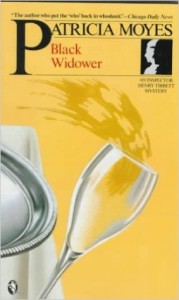 There’s something comforting and familiar when I pick up one from my collection of affable British people bumbling into murders mystery books. I know basically what I’m in for and it’s like cuddling up in your favorite blanket. I know I’m not in for any life changing epiphanies or revelations, but at least for one afternoon, I get to visit an England where everyone is proper and has a much higher than average chance of being murdered in a terrifically bizarre and baffling way.
There’s something comforting and familiar when I pick up one from my collection of affable British people bumbling into murders mystery books. I know basically what I’m in for and it’s like cuddling up in your favorite blanket. I know I’m not in for any life changing epiphanies or revelations, but at least for one afternoon, I get to visit an England where everyone is proper and has a much higher than average chance of being murdered in a terrifically bizarre and baffling way.
This book was none of that. For starters, there was cursing! I’m pretty certain my monocle popped out, my pearls’ monocles popped out as I clutched them, my tea cup and pinky finger audibly gasped, even Queen Elizabeth and her corgis felt a moment’s displeasure, as if a million murder aficionados (or, just one, really) cried out in horror and were suddenly silenced in shock. There may be crying, there may be fainting, there may even be a raising of the eybrows, but there is never, ever foul language. Then, over half the story occurs in America, of all tawdry places! It’s quite scandalous and I was outraged. It was a quiet outrage, nevertheless, it was still outrage.
Tampica is a newly independent nation island in the Carribean. They have broken off from the Mother Country, so most of the characters are at least former British nationals, so I guess I’ll allow it. The new ambassador to America and his wife are hosting their first reception. The ambassador is a Tampican hero whereas his wife couldn’t be more villainized as she’s a white, common, lower class shop model. I think Moyes was trying to be edgy with having an interracial relationship (the book is written in the 70s), but she handles dealing with race with astonishing ineptitude. There will be cringing. It’s never outright racism, but it is bordering on politically incorrect in today’s culture. (Seriously, all the white characters just smiled, whereas all the black characters smiled with fresh white teeth that contrasted pleasingly with their skin color. I’m sure to Moyes, it was a genuine compliment, but it left me feeling like, “I don’t think you should say that. I mean, it sounds like you are coming from a good place, but let’s just not have every sentence that describes a black character point out that he or she is, in fact, black. You aren’t calling every white character porcelain or milky.”)
